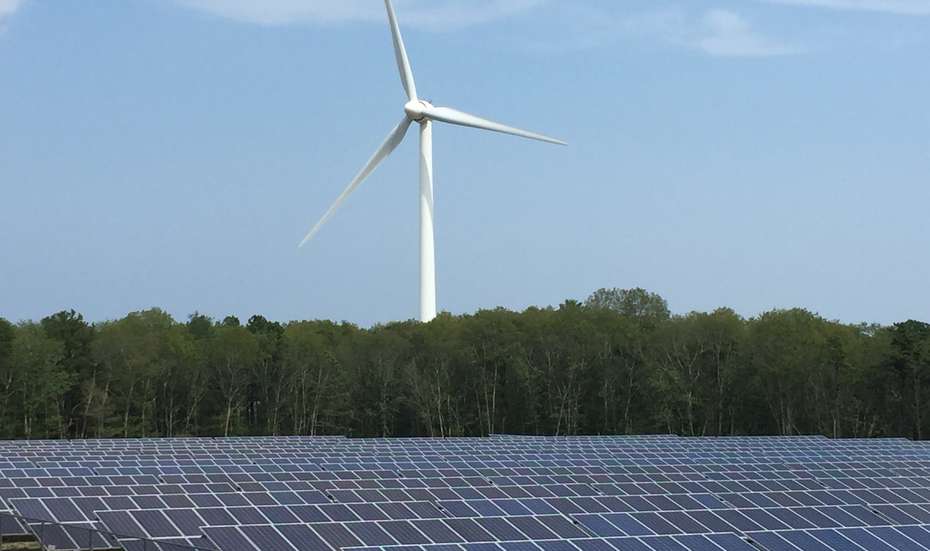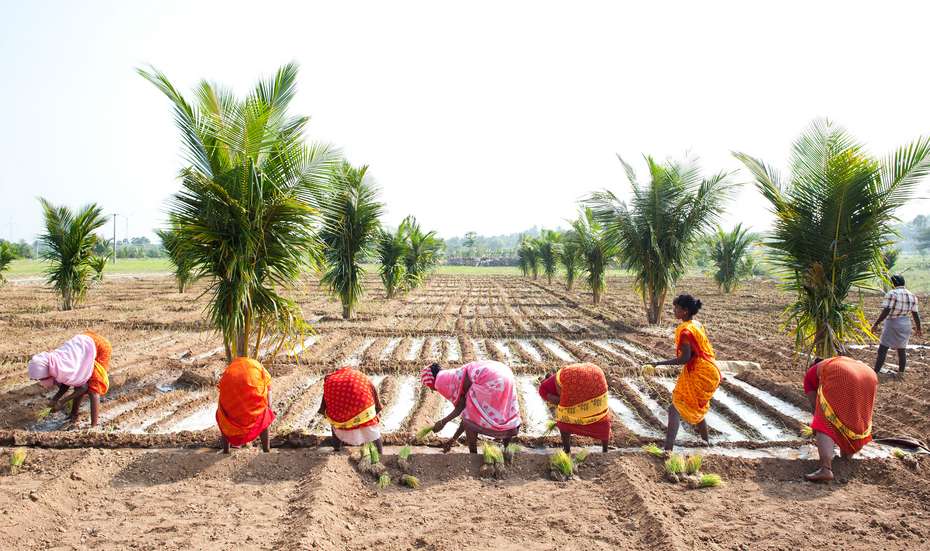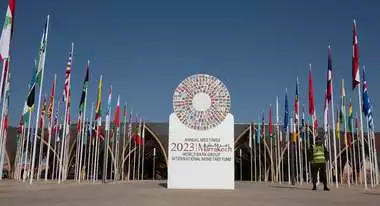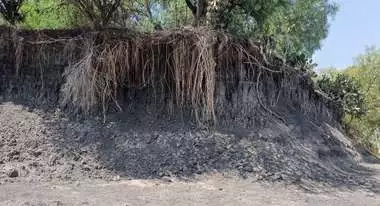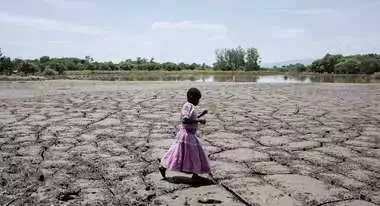Renewable energy: A key driver for transformation of agriculture-based livelihoods.
A decentralized supply offers opportunities for a more equitable energy supply and improved food security. However, international political efforts are needed to finance the kick-start.
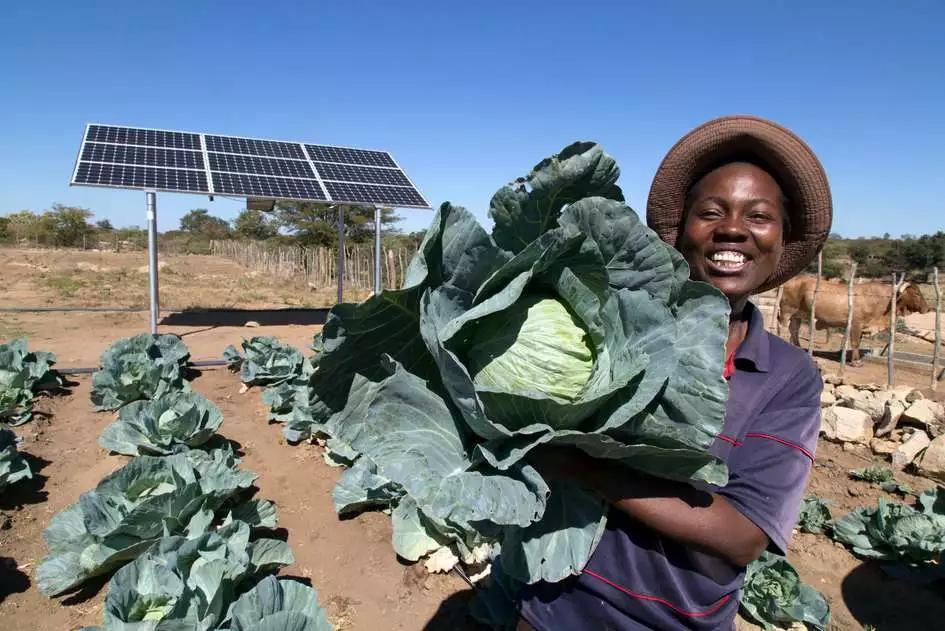
Energy is a key driver for sustainable growth and socio-economic improvement. Its role is fundamental in empowering lives and livelihoods. Agriculture, an important sector for economic growth and food security, contributes about 4% to the global gross domestic product and benefits from the energy interventions with around 2.5 billion people using some form of energy source across different nodal points of the agricultural value chains.
Cosumption rising
There has been a more than 20 percent rise in energy consumption for the production, distribution and consumption of food between 2000 and 2018. That growth has been mainly driven by mechanisation in Asia in the form of irrigation pumps, farm machinery, processing equipment and inputs such as fertilisers. Energy use in Africa, which hosts around 15 percent of the global population and faces growing food demand, has remained largely constant, accounting for only about 4 percent of global energy consumption in agri-food systems.
The agri-food systems account for about 30% of global energy consumption, most of it in post-harvest stages, the processes largely powered by fossil fuels. Energy is needed not only in the primary production for irrigation and harvesting but also for processing, storage, transportation, and distribution. This excludes the energy needs across support sectors like fertiliser manufacturing, agro-chemical processing, agro-equipment and machinery production.
However, about 38% of that energy is wasted through food losses at one point or another in the value chains. Data shows that around 14% of food produced globally is lost between harvest and retail. This calls for a greater use of energy for storage, processing, and transportation in a sustainable, efficient, and cost-effective ways.
The sustainable and climate-safe way to meet the growing demand of energy across the agri-food sector is through renewable energy technologies. Renewables solutions can reduce greenhouse gas (GhG) emissions from the sector, which is around 12.35% of the total global emissions.
Energy transition for smallholder farmers
The current dominant use of fossil-based energy resources in the agri-food sector is unsustainable, while millions of farmers and agro-enterprises lack access to reliable, affordable, and clean energy. The rising fossil fuels prices have also become a burden as they translate into higher costs of production, processing, and transport, which directly mean higher costs for consumers.
On the contrary, IRENA analysis shows that renewable energy prices are continuously on the downward trend, with generation costs from solar photovoltaic and onshore wind installed in 2021 falling by 13% and 15%, respectively, on a year-on-year basis. This makes a strong case for greater adoption of renewable energy technologies across the agri-food sector.
Small holders’ farmers are a significant contributor to the global food supply with around 1.5 billion people depending their livelihoods on a land size of up to ten hectares. Many of these farmers live in some of the poorest regions like the Sub-Saharan Africa, with most of them lacking electricity access.
Decentralised renewable energy (DRE) solutions can play a key role in providing modern energy in areas lacking reliable and affordable energy access. The modular nature of the DRE solutions allows suppliers to tap into locally available resources and deliver tailored energy services across diverse agri-food value chains. These solutions would result in higher agricultural yields, increased incomes, lower losses, greater climate resilience and reduced emissions.
However, DRE adoption in areas that need it most is still very low globally. Weak market structure for renewable energy products in rural areas, limited capacity to operate and maintain, and the lack of access to affordable finance to cover upfront installation costs have been identified as the key barriers. The affordability of renewable energy solutions for smallholders’ farmers depends on the availability and accessibility of appropriate financial products, requiring affordable interest rates and longer repayment tenures.
Provide targeted stimuli
Through more targeted channelling of affordable financial and de-risking mechanisms, a systemic transformation can ensue in the agri-food sector, which consequently will stimulate market creation for the various players along the agri-food value chains.
A comprehensive approach is thus needed to mobilise appropriate finance to increase affordability, support local enterprise development and enhance local capacity. Realising the need for such approach, the International Renewable Energy Agency (IRENA) and the government of the United Arab Emirates (UAE) started an initiative called Empowering Lives and Livelihoods: Renewables for Climate Action, that aims to mobilise USD 1 billion to promote the deployment of decentralised renewable energy solutions for strengthening the agri-food value chains, which will be formally launched on the margins of the 28th United Nations Climate Change Conference (COP28) in the UAE.
The initiative will simultaneously drive equity benefits especially for women, in light of the analysis by IRENA and the UN Food and Agriculture Organization that shows that women produce up to 80% of the food in most developing countries, yet they have increasing difficulty gaining access to resources such as water, land, credit, and productivity-enhancing inputs and services. Renewable energy solutions and integrated food-energy systems can directly advance both energy and food security, while contributing to job creation, gender equality and climate resilience.
With the initiative, IRENA and the UAE seek to upscale the use of renewables solutions in the agri-food sector; to improve livelihoods, stimulate economic activity, reduce poverty and enhance the quality of social services such as healthcare. To achieve this, stronger collaboration among different stakeholders is needed to synergise efforts and avoid duplication, in consultation with the governments and communities to offer the best solutions for the different needs and local contexts. To that end, IRENA and the UAE have started to engage governments, foundations, trusts, philanthropists, and the private sector ahead of COP28.

